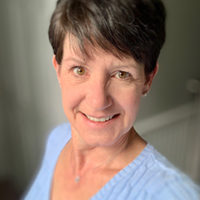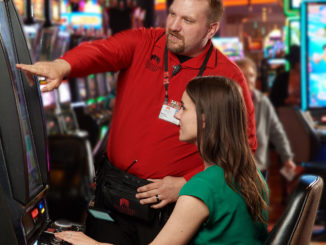
Casino robberies have increased over the last decade. I don’t know if anyone tracks these robberies specifically, but I think those of us who’ve been in the business awhile know that we are seeing more and more of them. I know that early in my career we didn’t worry about robberies because they were so rare in the gaming world. It’s fair to say that in the days of the mob in Las Vegas, people were probably afraid to rip off a casino fearing violent retribution, so it didn’t happen. I guess now that casinos have opened across the country and the mob is gone, robbing a casino seems like a good idea.
It isn’t that casinos are easy targets. They have their own security team, which includes a surveillance team with cameras everywhere, especially where the money is. They may have armed security officers both inside and outside. Additionally, cages usually have bars across their windows and the big money is locked up in the vault and safes. It isn’t easy to rob a casino, and more than likely, the suspects will be recorded on camera, identified and ultimately arrested.
So why then are casinos targeted?
Because, like banks, that’s where the money is! Most people believe that casinos have millions of dollars, in cash, ready and waiting to be taken at any time. Of course, we know that there usually isn’t that much all in one place, but in casinos we have tens of thousands, if not hundreds of thousands readily available. And it is that cash-rich environment that is so tempting to criminals.
In essence, casinos are extremely vulnerable to a robbery attempt at any one of their cash locations. We’ve seen robberies at the cage, satellite cages and vaults, sports books and retail outlets, to mention a few. Robberies have even occurred during cash transports with armed guards and security present!
Of course, criminals know that while we have security present, casinos will not allow their officers to engage a criminal to prevent a robbery attempt. Not physically, and we’re certainly not going to fire a weapon. Too many ways that can go wrong and an innocent person gets hurt or even killed to protect something that can be replaced and is even insured. Our job is to observe and report to the local police, hopefully providing them with enough information that they can identify and apprehend the suspects.
Sounds easy enough, until you realize that most gaming properties don’t practice their response to an alarm activation of any type. Yes, we have or should have all kinds of plans in place in the event something happens, but when it does happen, some properties may not be prepared.
Practice the Plan
It is when an individual or a team doesn’t have a plan or haven’t practiced what they will do when an emergency arises that things can get even worse, fast. Just think about what could happen if your security officer, instead of observing and reporting, decides to confront an armed robber who decides he has to fight his way out, and does so by firing his weapon. If anyone gets hit, or worse, severely wounded or killed, there will be hell to pay!
At best, lack of training and practice may result in failing to even locate the suspects at all or provide any significant information to the police that would aid in their identification and arrest. This happens a lot, more than you would think possible.
Most security and surveillance departments don’t conduct emergency drills for two reasons: 1) They are too busy in their day-to-day operations and/or 2) they don’t feel that there are enough people on the shift to conduct a drill.
Neither reason is a good one. Just ask yourself when an emergency will occur. Most of us will agree that emergencies are impossible to predict, and they will occur at the worst possible time. It won’t be when you have all of your team members present and ready, it will be when five of your officers and a supervisor have called in sick, in the middle of the night, on a busy Saturday night with events going on all over your property! No matter when it occurs, it will be the worst possible time!
With that in mind, it makes sense for us to practice whenever we possibly can with the people and resources that are in place now.
At the end of the day, this shouldn’t be hard. It usually takes less than 15 minutes to practice an initial response to an alarm. You could do that every week without hurting your business or your security program.
Here’s what I suggest to help you get your security and surveillance teams prepared:
- Develop your plan/response to a robbery attempt.
- Communicate your plan to stakeholders.
- Make sure each department understands their role and what their responsibilities are (usually cage, security and surveillance).
- Walk through your response slowly the first few times to work out any kinks and obstacles, and to answer any questions.
- Escalate the drill to include role player(s) to pose as a robber who will act as if he/she is robbing the cage, and allow the situation to play out with the cashier hitting the alarm, security and surveillance responding and police being notified just like in a real situation (be sure to let everyone know that it’s a drill). You can also not let anyone know it’s a drill (other than the police) to test your teams, but make sure that you are able to control the response and back it down if necessary.
Regular practice will hone your team to the point that they can respond to an alarm quickly and professionally while providing you with the best opportunity to obtain the necessary information you need to bring the suspects to justice. At the same time, you are also putting your property in the best position to protect your guests and team members from unnecessary harm.
This is where you want to be!




